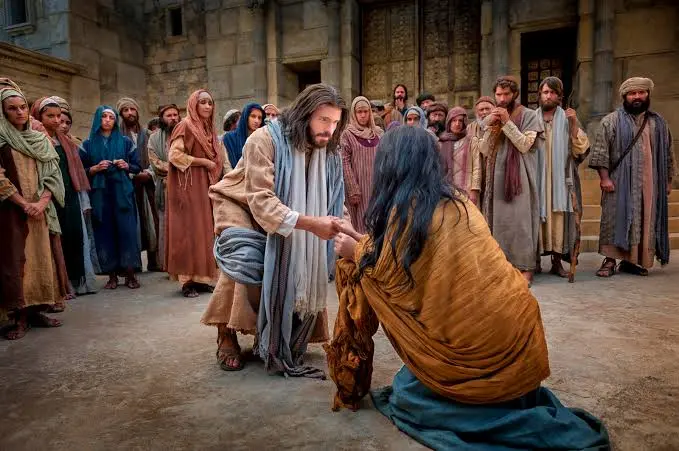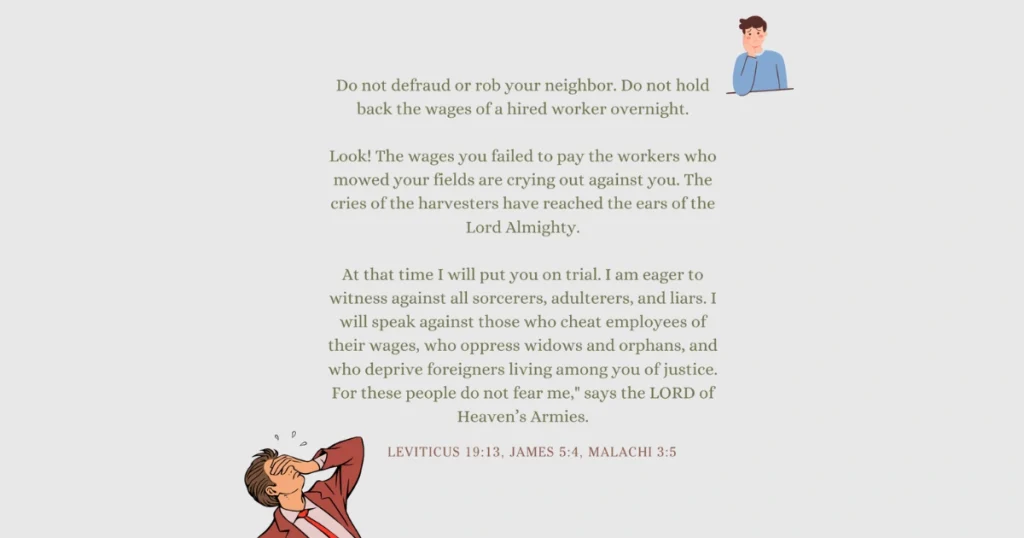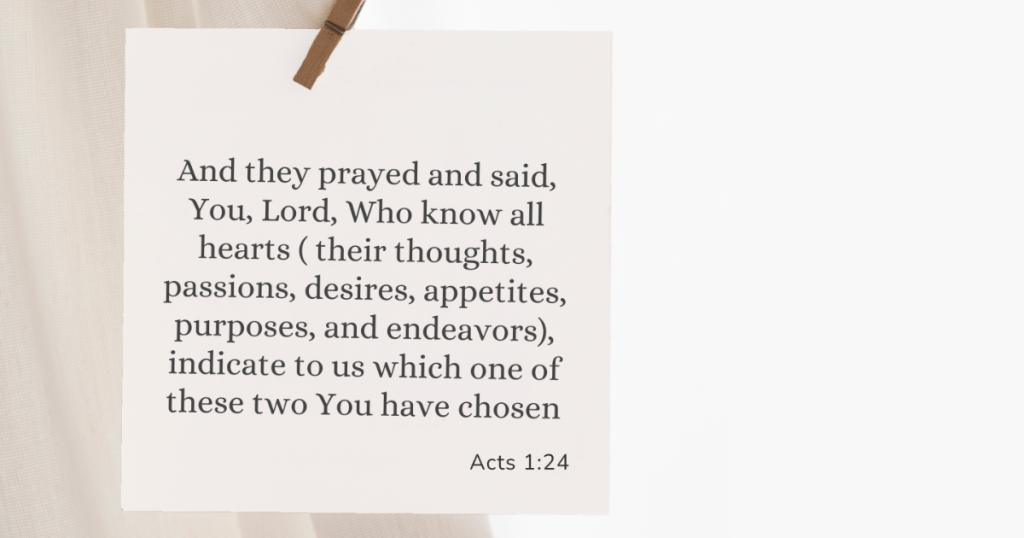"Jesus Christ: 'Woman, where are they? Has no one condemned you?'
The Woman: 'No one, sir’
Jesus Christ: 'Then neither do I condemn you, go now and leave your life of sin.” (John 8:10-11)
Paul: “Brothers and sisters, if someone is caught in a sin, you who live by the Spirit should restore that person gently. But watch yourselves, or you also may be tempted." (Galatians 6:1)
Imagine this. You’re a mother, and for days now, you’ve noticed something strange, meat keeps disappearing from the pot. At first, you let it slide, but today, you’ve had enough! This is the last time. Tonight, you decide, you will catch the thief red-handed.
So you wait. Then, in the stillness of the night, you hear soft footsteps creeping toward the kitchen. Your heart races. Ah-ha! you think. Every day is for the thief, but one day is for the owner of the house. I will catch this person and teach them a lesson they will never forget!
You watch as the figure cautiously looks left and right, then slowly lifts the lid of the pot. Just as they reach for the meat and bring it close to their mouth, you spring forward, flashlight in hand. “Got you!” you shout triumphantly.
But then, as the light floods their face, you freeze. A sharp breath gets stuck in your chest, because staring back at you… is you
This was the very position the teachers of the law found themselves in when they brought the woman caught in adultery before Jesus. The only difference? They had not yet been caught in their own sins. Jesus said to them: “Let the one who is without sin be the first to throw a stone at her.” (John 8:7)
The Hypocrisy of Unseen Sin and Storing Pearls of Grace
I once heard a minister say, “Don’t be too quick to condemn others for their sin. If circumstances were different, it could have been you. And worse still, you might find yourself doing the very thing you once condemned, or something even more grievous, given the right conditions. Pray for them instead.”
It was just a minute-long clip, but it has stayed with me ever since
It’s easy to condemn sins that are visible, like fornication or pregnancy outside marriage, while excusing those that remain hidden. But does secrecy make one any less guilty?
Just as the religious leaders failed to see their own guilt while condemning the woman, Peter, too, once believed himself to be above failure. “Even if all fall, I will not” he said. Yet, just a few hours later, under the pressure of fear and uncertainty, he denied Jesus three times. (Mark 14:29).
When you pray for those struggling with sin, you are not only interceding for their deliverance but also storing up what I like to think of as pearls, treasures of grace. In lifting others before God, you yourself are strengthened, receiving grace to stand firm when faced with similar temptations.
intercession has a way of fortifying our hearts, and shielding us from the very pitfalls we pray others through. It is a divine exchange, grace for grace, strength for strength.
We are all More Vulnerable than We Think.
Peter’s story reminds us how easy it is to overestimate our own strength and judge others harshly. This same pattern plays out today, many condemn others without realizing they are vulnerable to similar or even greater sins. It’s easy to judge from the outside, but until we are placed in the same heat of temptation, we don’t truly know what we are capable of.
Many of us have judged sins we once thought ourselves incapable of, only to later find ourselves struggling with the very same things.
Take, for example, those who see themselves as Special Assistants to Jesus Christ. They are so sure of their moral standing that they confidently declare they would never steal or misuse power if placed in a position of authority. They have condemned every corrupt leader in Nigeria, anyone who has taken bribes, and all those who have diverted public funds.
Yet, when they themselves are placed in a similar position, perhaps as a local government chairman or even the president of a small organization, they somehow manage to misappropriate more money than the very people they once criticized.
The Pharisees were quick to condemn because they believed they were spiritually superior. But Paul reminds us that no one is beyond falling into sin. He said: So, if you think you are standing firm, be careful that you don’t fall. (1 Corinthians 10:12).
This is why Jesus warns us not to be so focused on someone else’s sin that we ignore the state of our own hearts. If all you do is point fingers at others, without guarding your own soul, you might just find yourself in the same place you once judged. (Matthew 7:3-5)
God Hates the Sin, But Not The Sinner
This message is not about ignoring sin or refusing to help people turn back to God. Rather, it is about refusing to join the crowd that eagerly casts stones at those who fall. Instead of condemning them to be lost forever, we are called to reach out in love, pray for them, and guide them back to Christ. (Galatians 6:1)
Our role is not to cast stones but to lift hands in prayer, believing for the redemption of those who fall, just as Christ has done for us. If Paul, with all he accomplished for Christ, still said: “I discipline my body and keep it under control, lest after preaching to others I myself should be disqualified.“ (1 Corinthians 9:27), then wouldn’t it be dangerous to assume we are above temptation?.
This is one of the reasons why Scripture calls us to be sober-minded. (1 Peter 5:8).
Soberness keeps us in a reflective state, a place where we remain sensitive to the Holy Spirit, where our hearts become a welcoming environment for His presence and His work.
Paul also warned: “Therefore judge nothing before the appointed time; wait until the Lord comes. He will bring to light what is hidden in darkness and will expose the motives of the heart.” (1 Corinthians 4:5)
While you are still busy condemning someone, the Holy Spirit may already be at work in their heart, leading them back to God. And even as you persist in judgment, that very person might be quietly finding their way home to their Lord.
Remember the tax collector in the temple, who couldn’t even lift his head but beat his chest in repentance? “God, have mercy on me, a sinner!” (Luke 18:13)
Or Rahab, a prostitute by reputation but a woman God saw beyond her past, one whose faith placed her in the lineage of Christ?
God’s Love is Constant
1 John 3:20 tells us that even when our own hearts condemn us, God is greater than our hearts. His love is unshaken by our failures.
In the same way, while we may be quick to judge and condemn others, God does not. This doesn’t mean He approves of sin, but rather that His desire is always redemption. (Ezekiel 18:23, Ezekiel 33:11). No matter how guilty we or anyone else may feel, His love remains constant. He does not condemn us. His Spirit convicts, not to shame us, but to bring us into the light so we can turn back to Him. God never rubs our failures in our faces or taunts us with them.
Instead, He assures us: “Though your sins are like scarlet, they shall be as white as snow; though they are red like crimson, they shall be as wool.” ( Isaiah 1:18)
“Again, He says: “I, even I, am He who blots out your transgressions for My own sake; and I will not remember your sins.” (Isaiah 43:25)
While humanity was lost in sin, Jesus Christ came and gave His life for us. (Romans 5:8)
This is the heart of the gospel: not just exposing sin, but offering a way back. And this is what Jesus demonstrated so powerfully in that moment when He knelt in the dust. His silence spoke volumes, His actions rewrote the woman’s story, not with condemnation, but with grace. This is the same invitation we must learn to extend to people.
The Way of Jesus is the Way of Mercy
We’re called to hate sin, not the person struggling with it. If you despise them, how can you pray for them? How can you love them the way Christ does? Correction isn’t about putting people in their place, it’s about helping them find their way back home.
So when you correct, do it with love, with understanding, and with the truth of God’s Word. Let your words pull them up, not push them down. Speak the truth, yes, but wrap it in grace, just like Jesus did. Always point them back to the Father, whose arms are still open, waiting.
If you’re not sure you can speak the truth in love, then wait. Take a step back. Pray for them first. Ask God for wisdom on how to say what needs to be said. Sometimes, the best thing you can do in the moment is hold your tongue and let grace lead. Scripture reminds us that our words should always be seasoned with grace (Colossians 4:6), not sharp with judgment.
I believe this is one of the reasons why, when people offend us, the Holy Spirit often prompts us to pray for them. Prayer keeps our hearts soft and aligned with God’s, reminding us that His desire is always redemption, not destruction.
If Jesus were writing in the sand before you today, what would He be reminding you of? Would you still be holding a stone






